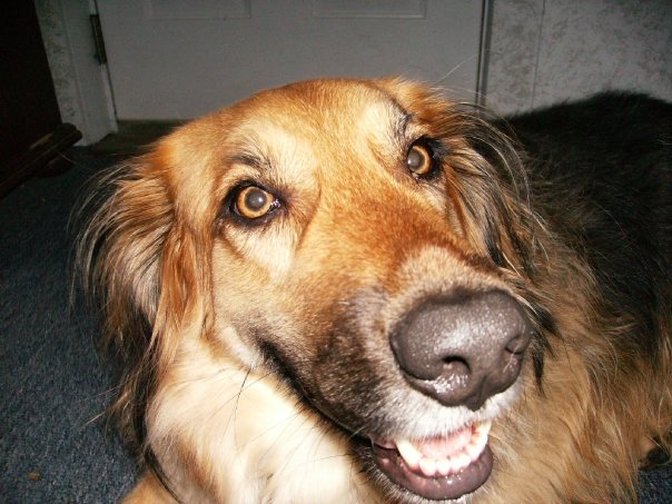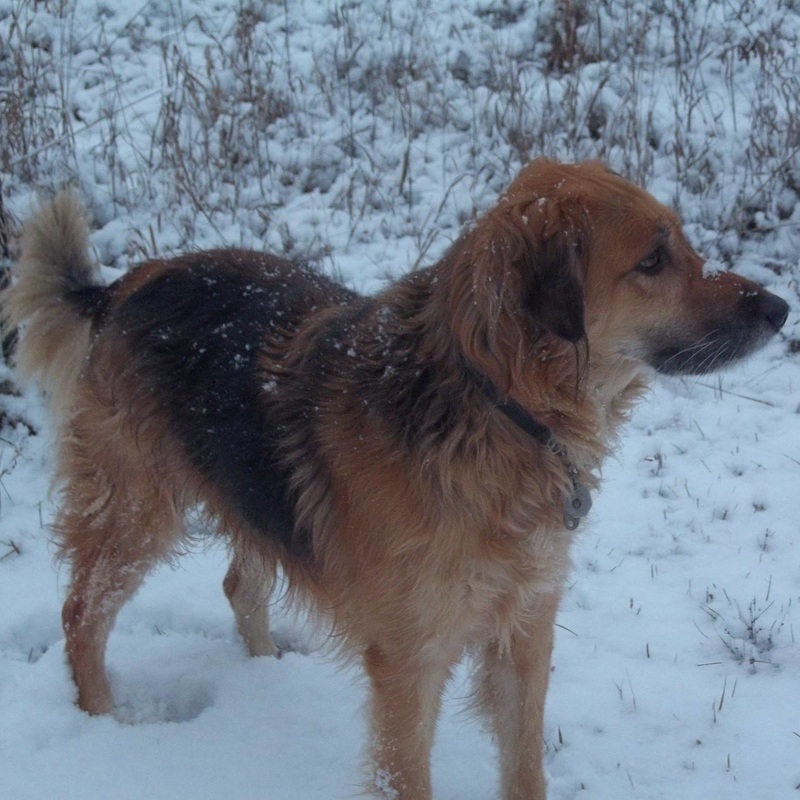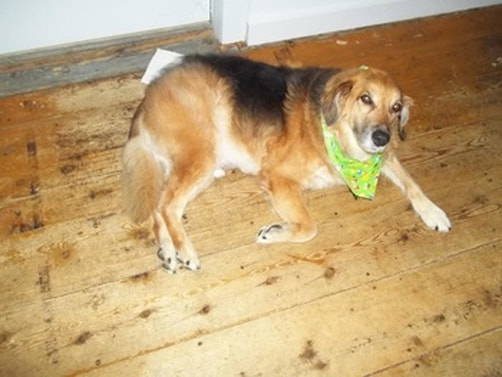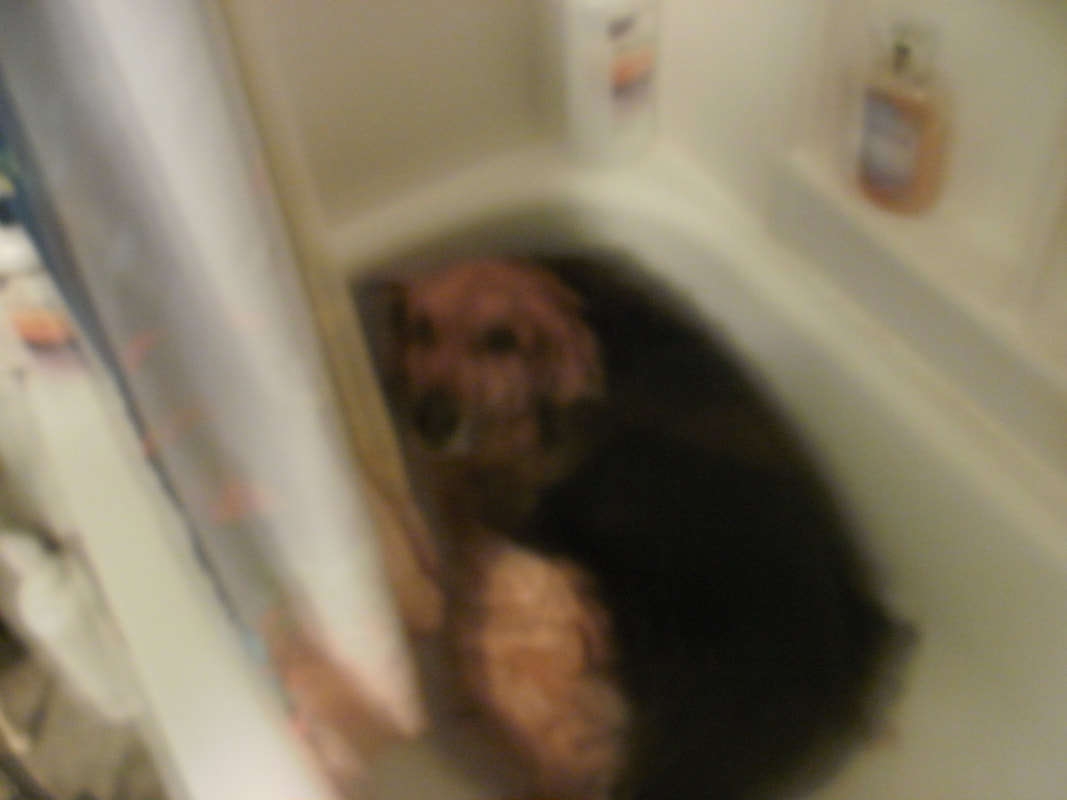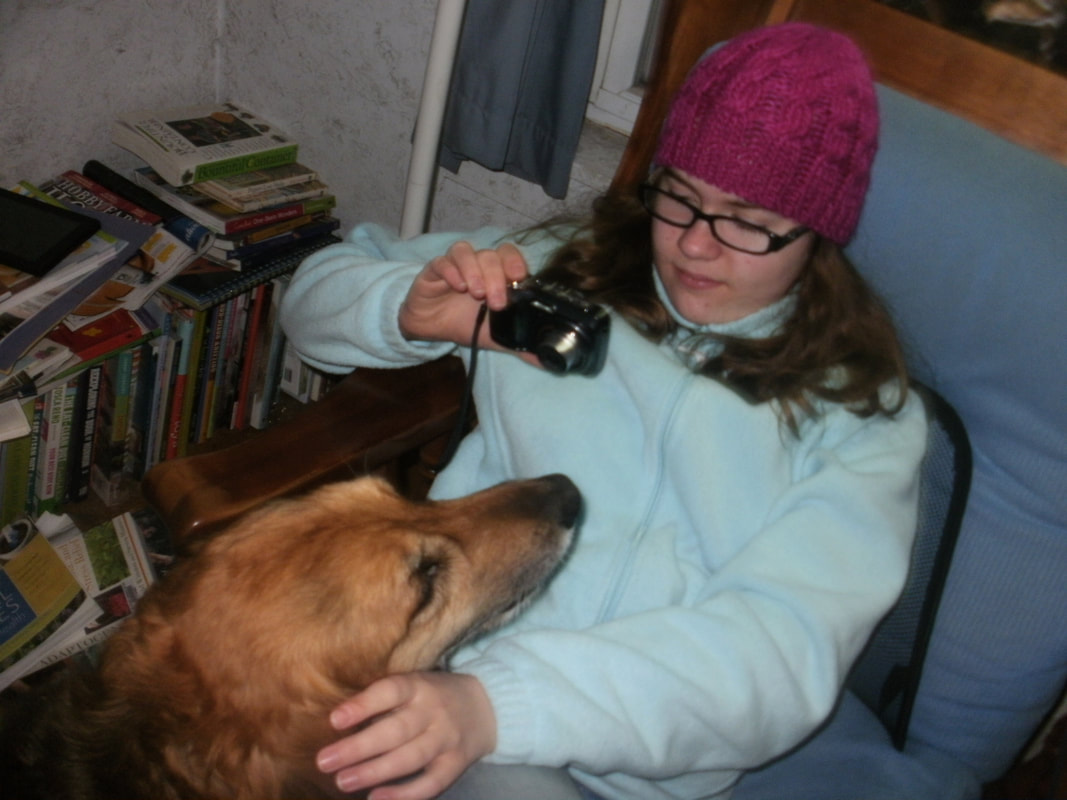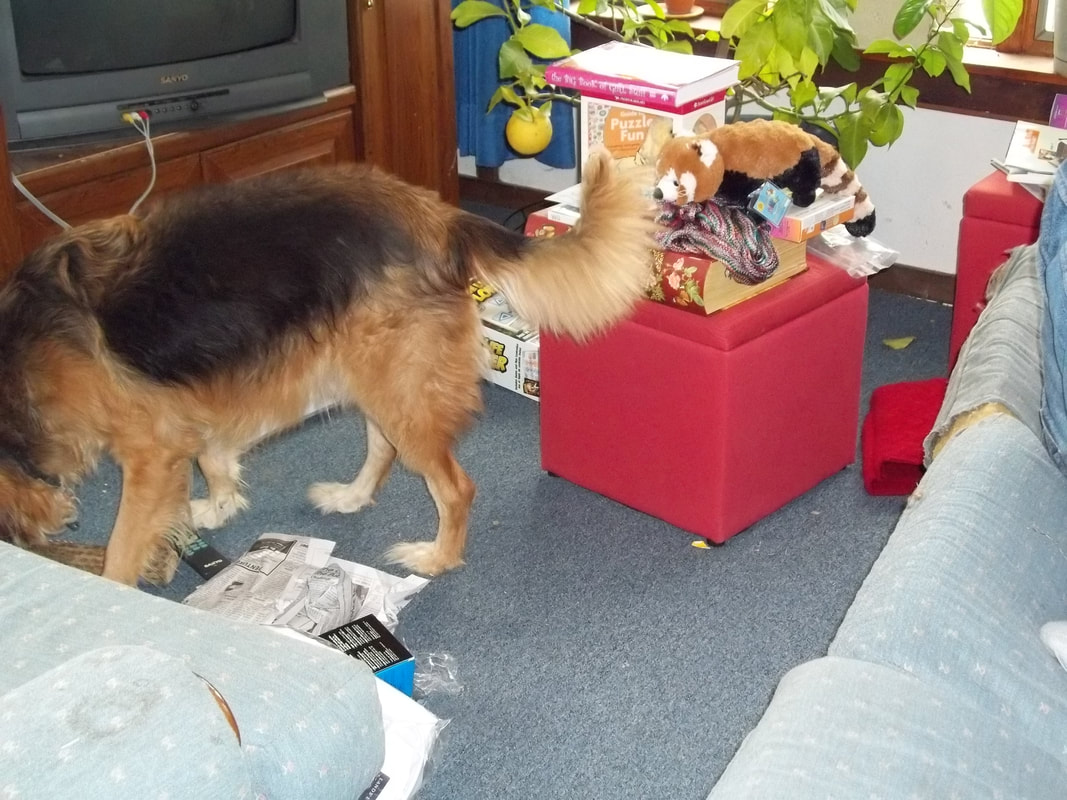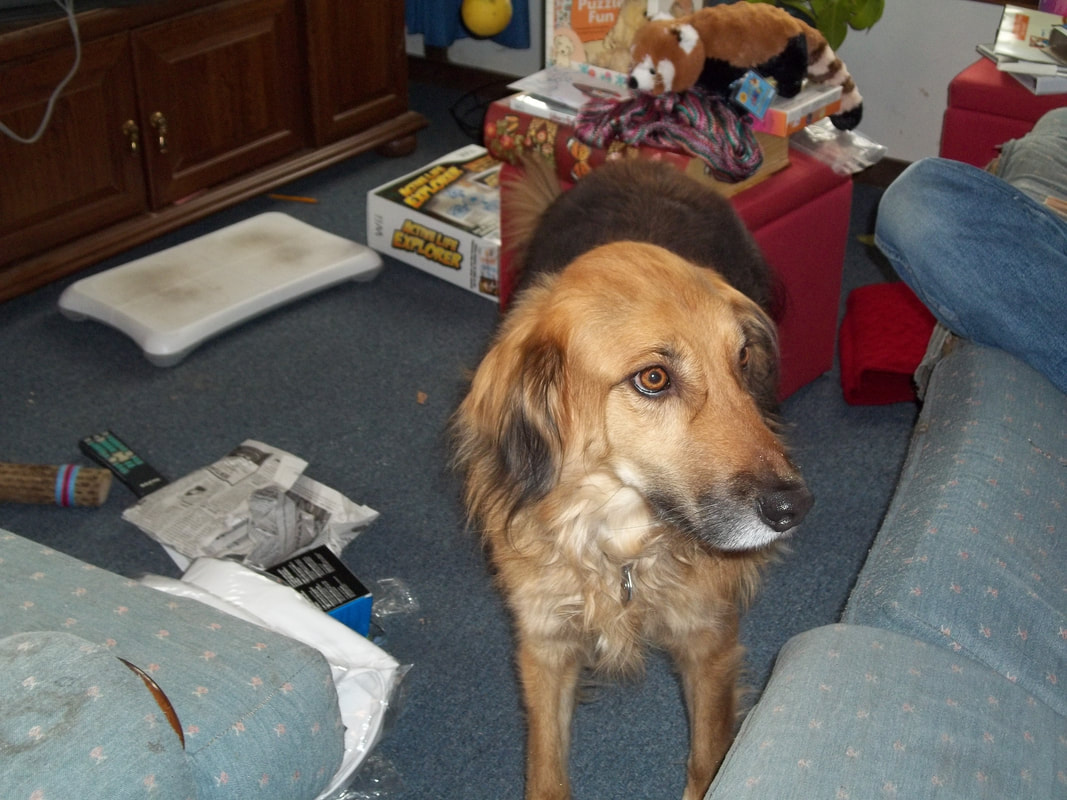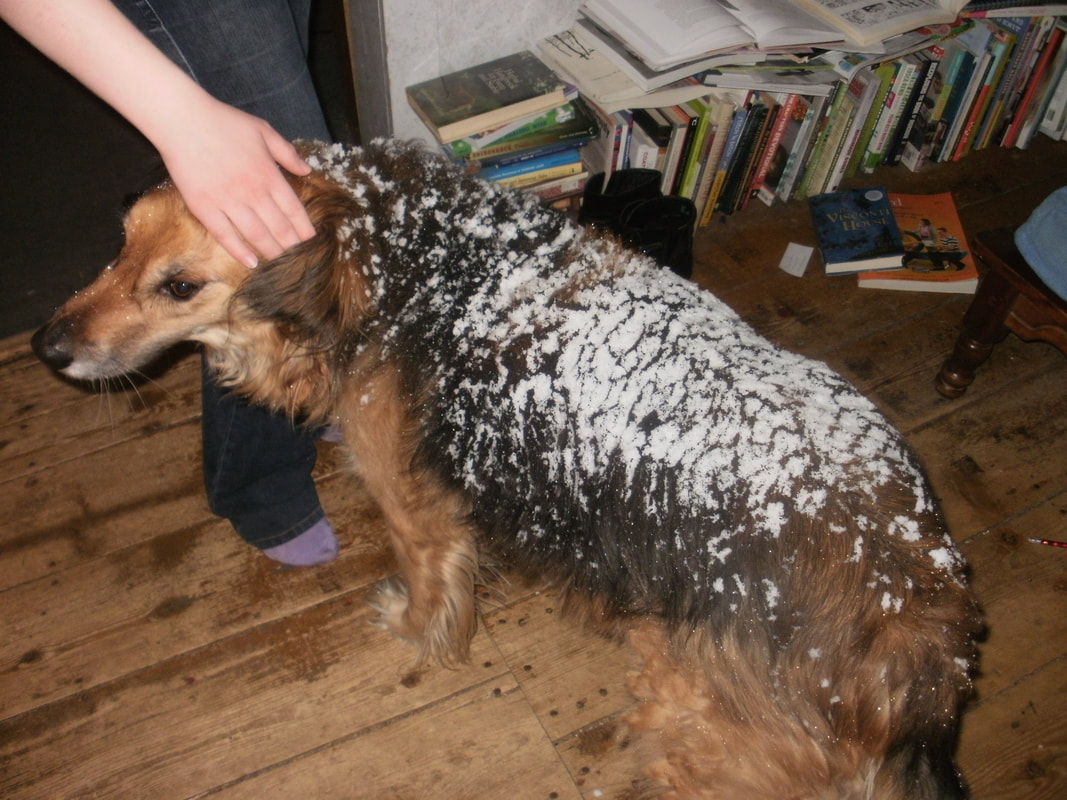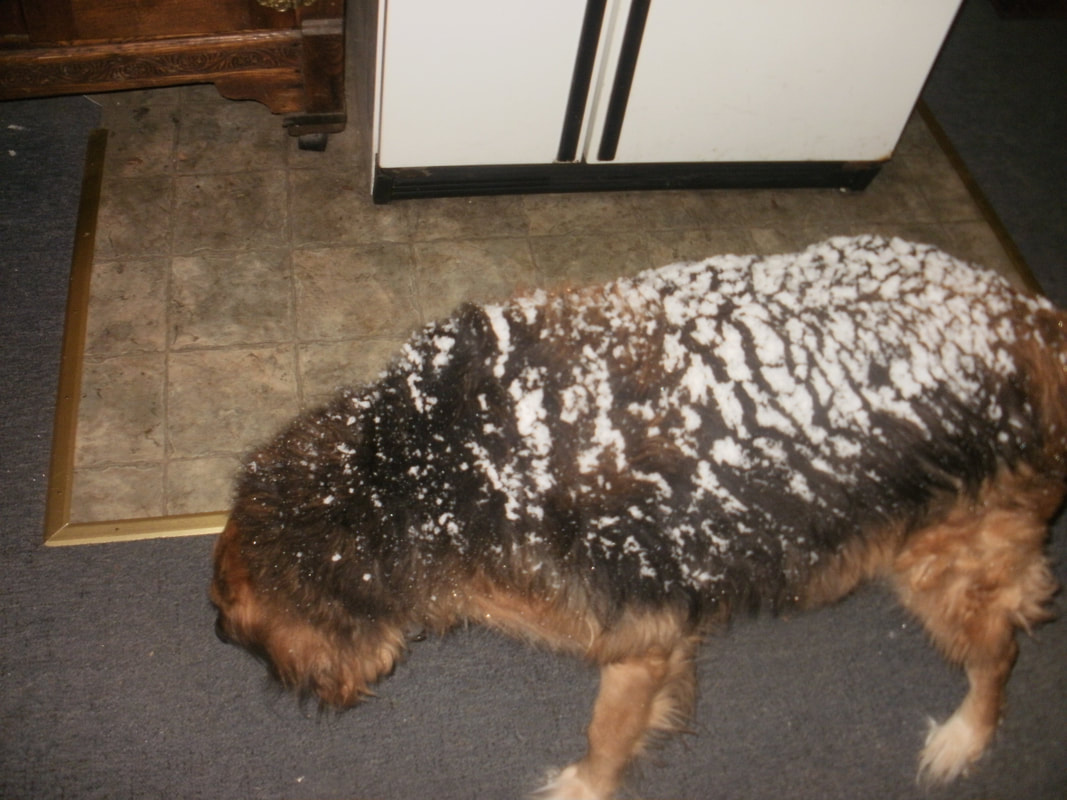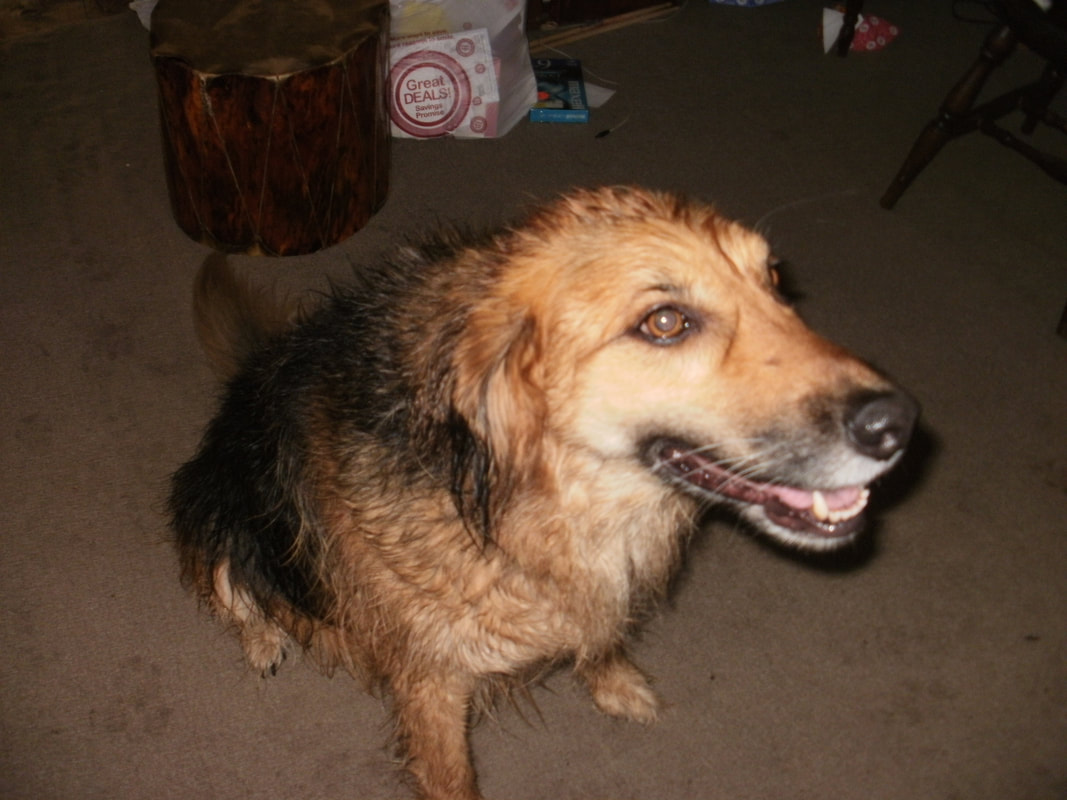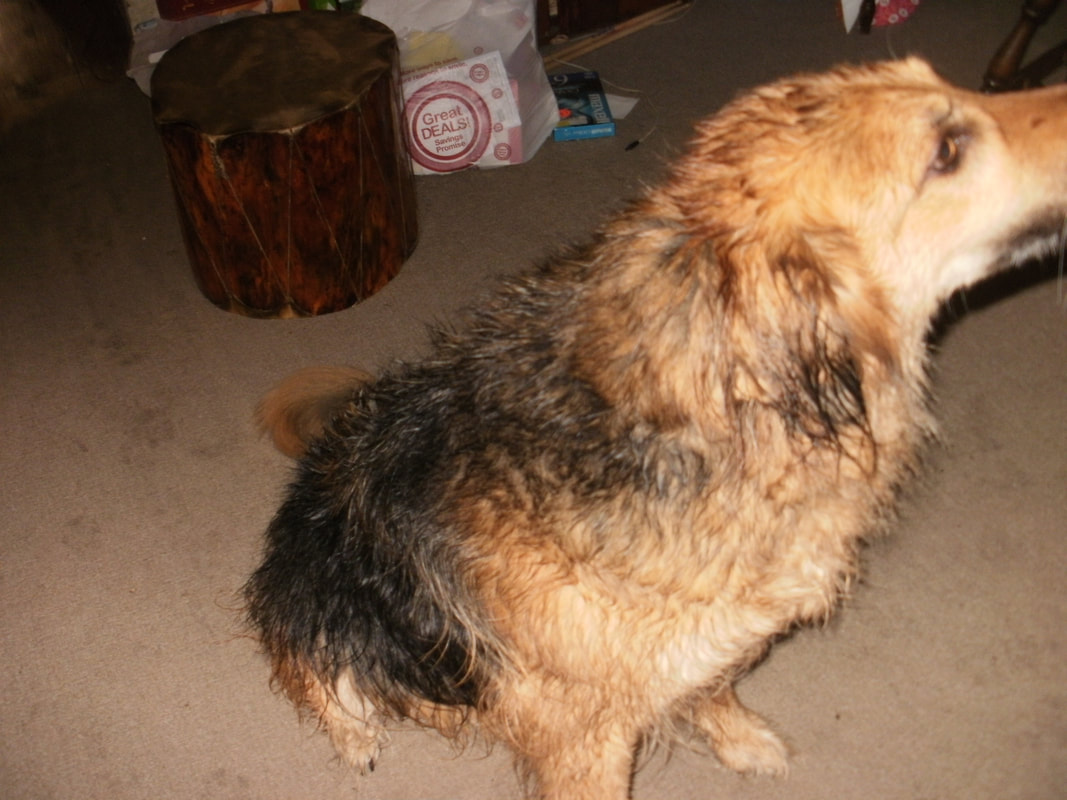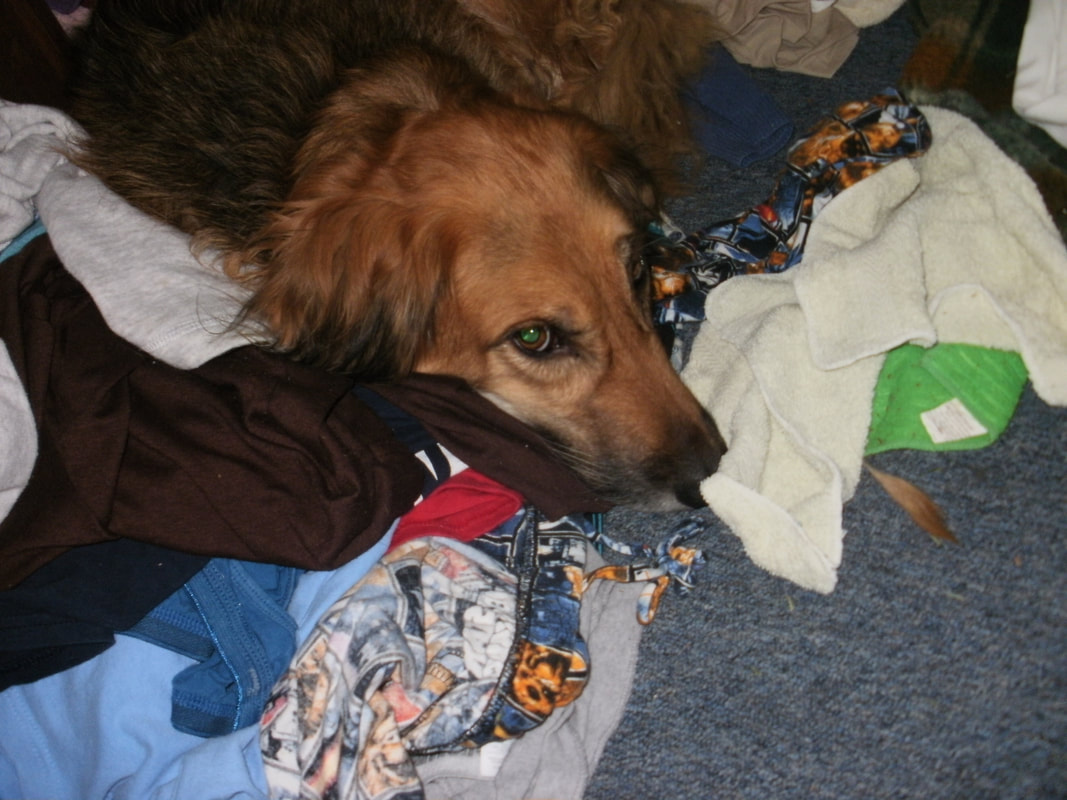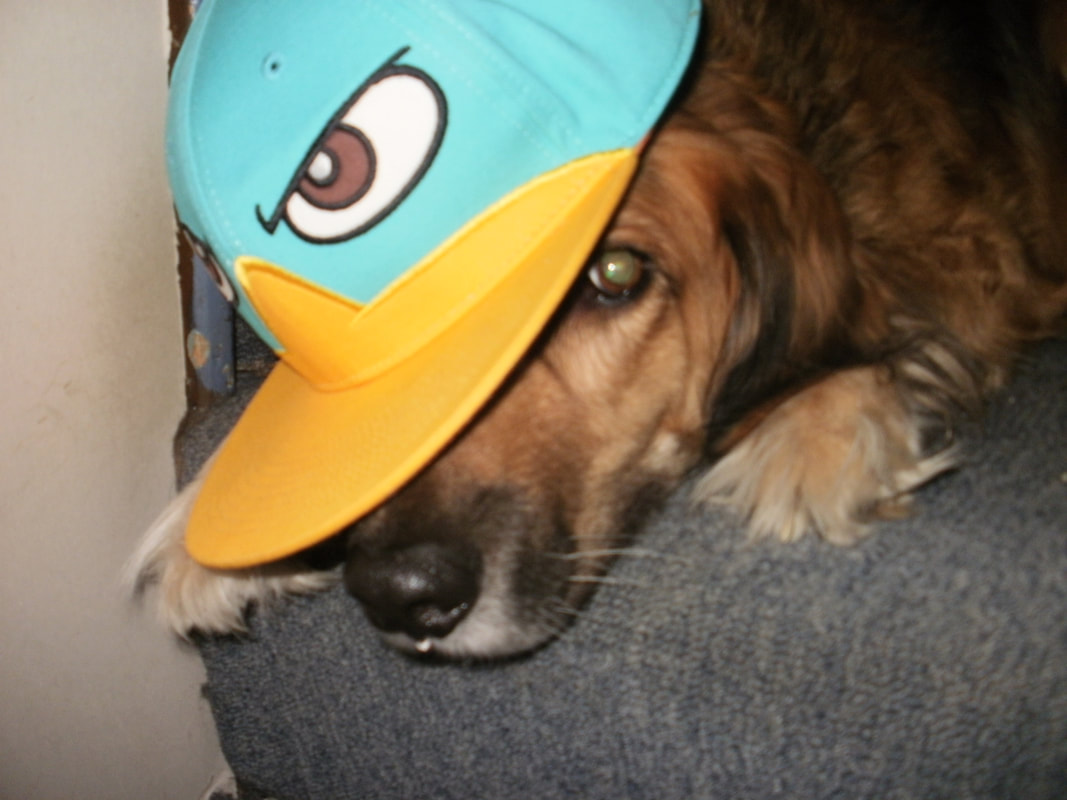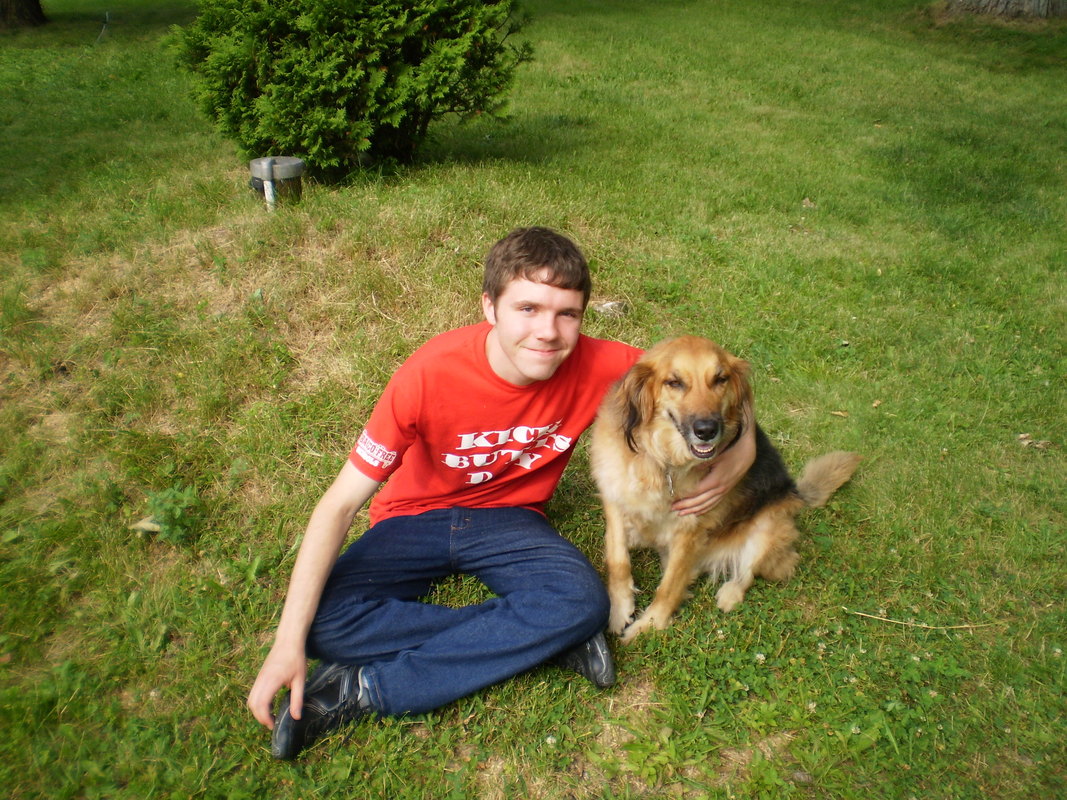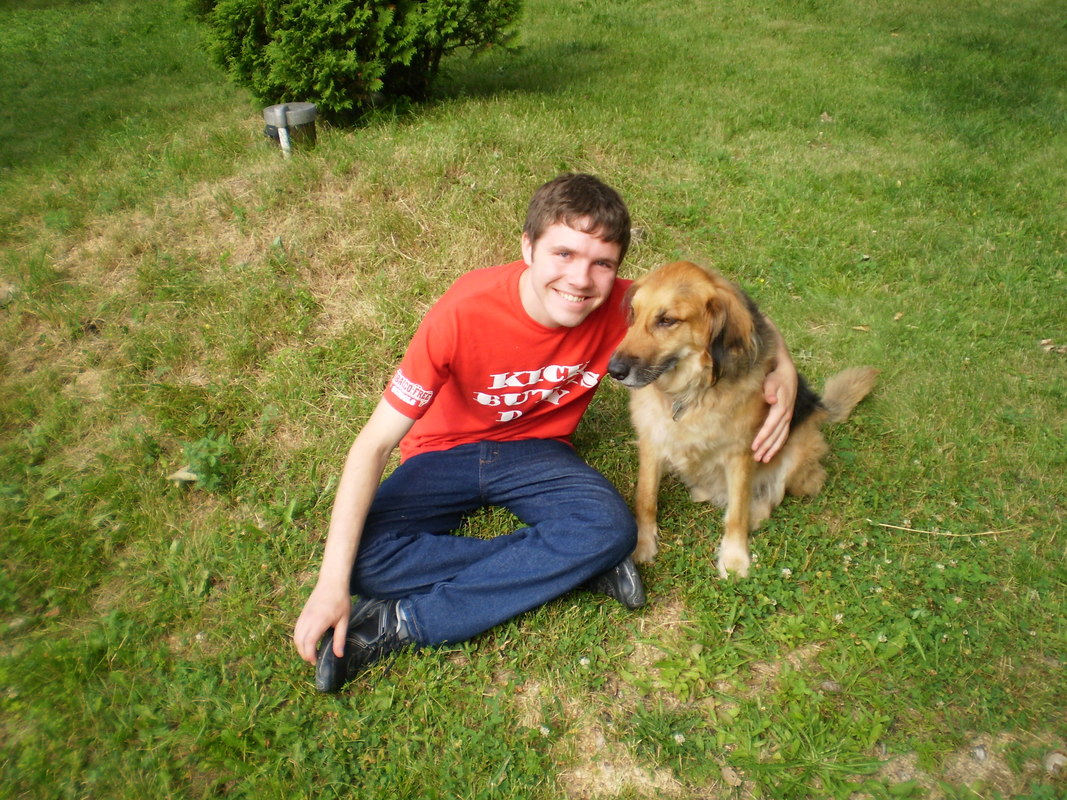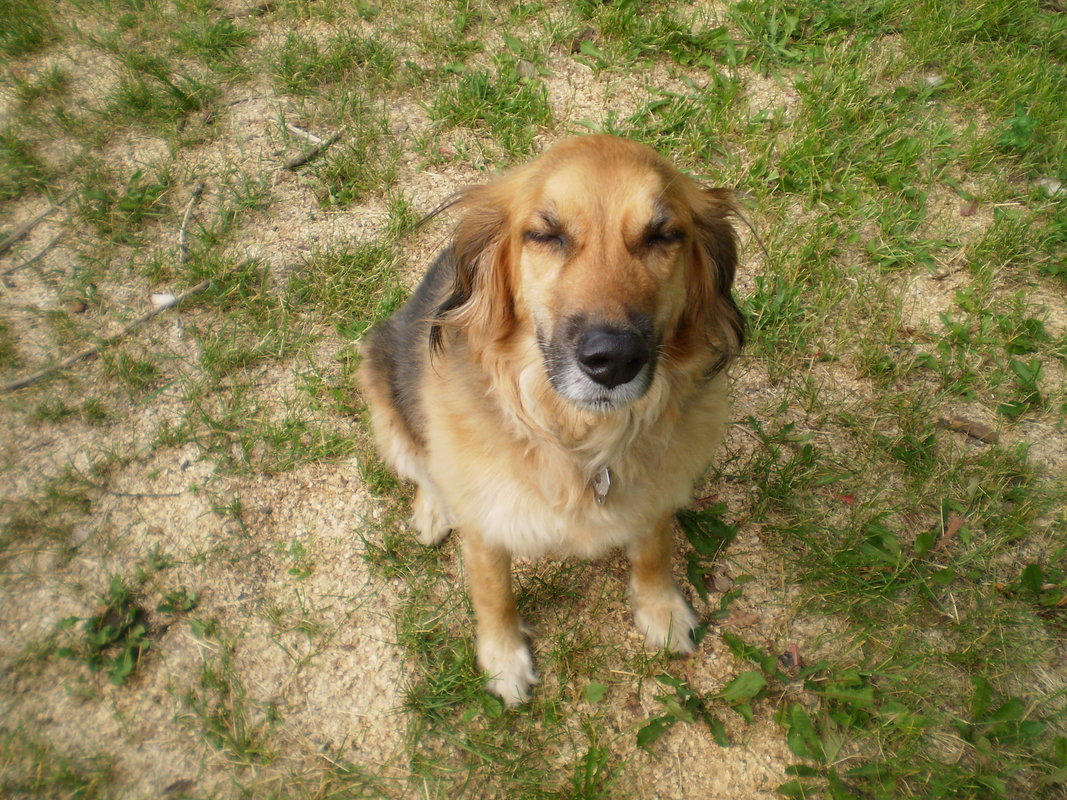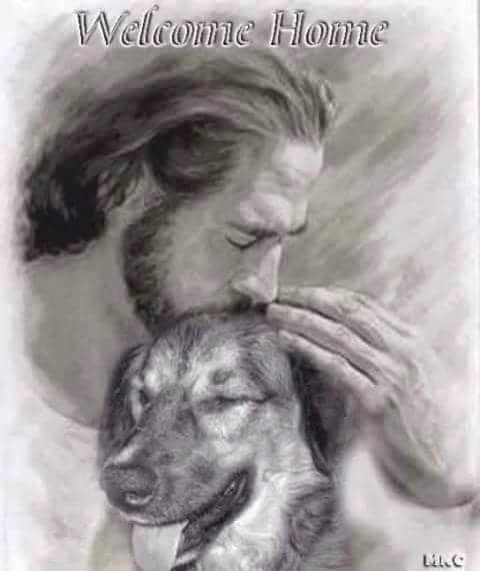The Milo Nicholson Memorial Page
In the summer of 2005 my family visited my grandparents in Idaho, and when my parents and two youngest sisters returned home to New York they left me and my oldest sister, Heather, to stay for another week. One day my grandmother mentioned that our parents had a surprise for us when we got home. I wondered aloud what it could be and she hinted, "It's something your mom didn't want to have." In an instant I knew what it was.
When I was five or six we had a dog named Trillian that the neighbors gave us, but she aggressive and killed one of our sheep and I had a newborn sister so my dad shot her. The dog, I mean. It took me a long time to forgive him for that. Heather and I, mostly I, wanted another dog, but as mentioned, my mom didn't. But by this time she gave in to make us happy. My Uncle Randy's dog had a litter of puppies, and we saw them when we went down to visit once, with my cousin McKenzie frequently shoving one in our faces and chanting, "He needs sugah!" It was one of these puppies that my parents picked out. They knew his parents and they trusted that he would turn out better than our previous dog. He was part Labrador and part collie, and they named him Milo after my mom's hometown. I was annoyed at not getting to help choose the name, but it grew on me. When we returned home he was there to greet us, having escaped from the fenced area that my dad had just set up in the backyard.
It turned out that what Heather wanted was a puppy, not a dog, so once he grew up she mostly lost interest. I didn't. I fed him and let him out to relieve himself before school, and took him around the front yard or the woods after school. Once I got a scare when I looked down to see him nonchalantly sniffing the rear end of a porcupine. On weekends I took him for walks down the street and around town, sometimes out of town, ranging from half an hour to two hours depending on when he felt like turning back. We often visited the Kellers and their dogs Pepper and Daisy, and he tried to go there every time we passed their house. I brushed him and trimmed him and picked burrs out of his fur. I loved to scratch his head and feel his cold, wet nose. I loved the feeling of his nose so much that I went out of my way to touch it with my arm whenever I scratched his head.
Milo was quite annoying at times. He constantly wanted attention, and if he came up to you and you didn't pay attention to him, he went and sulked. Sometimes, for reasons unknown to me, scratching his head would prompt him to start licking his lips noisily. We tried to discourage that by holding his mouth closed, and he got the message, so sometimes his tongue would just out and quiver as he visibly strained with the effort of not doing it. Why? Sometimes when I walked him, he would move behind me to my other side, so that I had to spin around so the leash wasn't behind me. When I could tell I was about to do that I would stop walking, and he would stop too, and we would have a brief stalemate. But even at the height of annoyance, it never obscured the feeling of love that was always present.
Milo's love was not unconditional, but was predicated on the right conditions. I fed him, walked him and lavished affection on him, and in return he loved me. So I had to do something to deserve that love, but nothing excessively difficult or arbitrary. I kind of like that even better than unconditional love because I don't see why I should feel particularly good about a love that would be the same if I were Hitler. This kind of love convinces me that I'm a good person but that I'm not expected to be perfect. I also felt my own love for Milo more overtly than for anyone else ever. I'm sure I love my family more, but that's more of the subdued taking-for-granted kind. When I left for college, I missed him more than anyone else, and I was grateful that my sister Melanie took over my responsibilities and loved him as much as I had.
I knew he would be gone sooner than later, but I wasn't prepared for my dad to text me on August 22, 2016, "Milo is having a rough night. He appears to be done eating for good, and he's having a hard time keeping water down. The poor guy is pretty uncomfortable."
I was also not prepared, though not surprised either, for him to follow up two days later with, "Well, that's it. Milo has passed on."
I wasn't distraught, but I just felt empty and lonely and unreal. It just seems perverse that dogs have such short life spans. It seems as perverse to me as if a human child were to die of old age when he was twelve. And now I have to wait so very, very long to see him again.
I was also not prepared, though not surprised either, for him to follow up two days later with, "Well, that's it. Milo has passed on."
I wasn't distraught, but I just felt empty and lonely and unreal. It just seems perverse that dogs have such short life spans. It seems as perverse to me as if a human child were to die of old age when he was twelve. And now I have to wait so very, very long to see him again.
Anyway, George Gordon Byron long ago expressed how I feel about him better than I or probably anyone else could.
Epitaph to a Dog
By George Gordon Byron
Near this Spot
are deposited the Remains of one
who possessed Beauty without Vanity,
Strength without Insolence,
Courage without Ferosity,
and all the virtues of Man without his Vices.
This praise, which would be unmeaning Flattery
if inscribed over human Ashes,
is but a just tribute to the Memory of
BOATSWAIN, a DOG,
who was born in Newfoundland May 1803
and died at Newstead Nov. 18th, 1808.
When some proud Son of Man returns to Earth,
Unknown to Glory but upheld by Birth,
The sculptor’s art exhausts the pomp of woe,
And storied urns record who rests below:
When all is done, upon the Tomb is seen
Not what he was, but what he should have been.
But the poor Dog, in life the firmest friend,
The first to welcome, foremost to defend,
Whose honest heart is still his Master’s own,
Who labours, fights, lives, breathes for him alone,
Unhonour’d falls, unnotic’d all his worth,
Deny’d in heaven the Soul he held on earth:
While man, vain insect! hopes to be forgiven,
And claims himself a sole exclusive heaven.
Oh man! thou feeble tenant of an hour,
Debas’d by slavery, or corrupt by power,
Who knows thee well, must quit thee with disgust,
Degraded mass of animated dust!
Thy love is lust, thy friendship all a cheat,
Thy tongue hypocrisy, thy heart deceit!
By nature vile, ennobled but by name,
Each kindred brute might bid thee blush for shame.
Ye! who behold perchance this simple urn,
Pass on, it honors none you wish to mourn.
To mark a friend’s remains these stones arise;
I never knew but one—and here he lies.
are deposited the Remains of one
who possessed Beauty without Vanity,
Strength without Insolence,
Courage without Ferosity,
and all the virtues of Man without his Vices.
This praise, which would be unmeaning Flattery
if inscribed over human Ashes,
is but a just tribute to the Memory of
BOATSWAIN, a DOG,
who was born in Newfoundland May 1803
and died at Newstead Nov. 18th, 1808.
When some proud Son of Man returns to Earth,
Unknown to Glory but upheld by Birth,
The sculptor’s art exhausts the pomp of woe,
And storied urns record who rests below:
When all is done, upon the Tomb is seen
Not what he was, but what he should have been.
But the poor Dog, in life the firmest friend,
The first to welcome, foremost to defend,
Whose honest heart is still his Master’s own,
Who labours, fights, lives, breathes for him alone,
Unhonour’d falls, unnotic’d all his worth,
Deny’d in heaven the Soul he held on earth:
While man, vain insect! hopes to be forgiven,
And claims himself a sole exclusive heaven.
Oh man! thou feeble tenant of an hour,
Debas’d by slavery, or corrupt by power,
Who knows thee well, must quit thee with disgust,
Degraded mass of animated dust!
Thy love is lust, thy friendship all a cheat,
Thy tongue hypocrisy, thy heart deceit!
By nature vile, ennobled but by name,
Each kindred brute might bid thee blush for shame.
Ye! who behold perchance this simple urn,
Pass on, it honors none you wish to mourn.
To mark a friend’s remains these stones arise;
I never knew but one—and here he lies.
